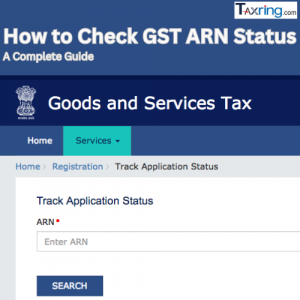
Effortless Private Limited Company Registration Online: A 2024 Guide
Private Limited Company Registration in India When setting up a business in India, many entrepreneurs opt for a private limited company due to its advantages. This structure provides shareholders with limited liability protection and imposes specific ownership restrictions. Unlike an LLP where partners manage the operations, a private limited company clearly differentiates between directors and shareholders.
At taxring, we simplify the process of registering a private limited company with our affordable and efficient service. We manage all legal requirements and ensure full compliance with Ministry of Corporate Affairs (MCA) regulations, making your registration process smooth and hassle-free
What is a Private Limited Company?
A Private Limited Company is an independent legal body that exists independently of its owners. By limiting its owners' responsibility to their investment, it shields private assets from company debt. Important characteristics consist of:
- Limited Liability: Except for their investment, shareholders have no personal liability for business debts.
- Differentiated Legal Entity: The business runs without the owners' interference.
- Controlled Share Transfer: Transferring shares requires the consent of current shareholders and is not permitted freely.
Top Benefits of Registering a Private Limited Company in India
1. Robust Limited Liability Protection
- Registering as a Private Limited Company ensures that shareholders' personal assets are safeguarded from business liabilities. This structure minimizes personal financial risk, offering peace of mind and security against potential business debts.Private Limited Company
2. Elevated Credibility and Trust
- A Private Limited Company often commands higher trust and credibility in the business world. This formal status makes your company more attractive to clients, investors, and financial institutions, which can be crucial for establishing business relationships and securing contracts.
3. Streamlined Access to Capital
- Attracting investment becomes easier with a Private Limited Company. The formal business structure and limited liability feature enhance your company’s appeal to venture capitalists and banks, facilitating smoother acquisition of funding and financial resources.
4. Continuous Existence with Perpetual Succession
- Unlike other business forms, a Private Limited Company benefits from perpetual succession. This means the company will continue to operate seamlessly despite changes in ownership or management, ensuring long-term stability and continuity.
5. Attractive Tax Benefits and Incentives
- Companies registered under the Private Limited format can take advantage of various tax benefits and incentives. These tax advantages can significantly reduce your overall tax burden, improving financial efficiency and potentially increasing profitability.
- 6. Flexible Ownership Transfer
- Transferring ownership in a Private Limited Company is simpler compared to other business structures. The ease of buying and selling shares facilitates smoother business transitions, whether you’re expanding, selling, or introducing new investors.
Exploring Different Business Structures for Company Registration in India
When starting a business in India, selecting the right type of company structure is crucial. Each form of company registration offers distinct features and benefits tailored to different needs. Here’s a guide to the primary business entities available:
1. Private Limited Company
- Ideal For: Small to medium-sized enterprises.
- Features: A Private Limited Company is a popular choice for entrepreneurs seeking limited liability and formal structure. It requires a minimum of two directors and two shareholders, providing a solid foundation for growth while protecting personal assets from business liabilities.
2. Public Limited Company
- Ideal For: Large businesses and those looking to raise significant capital.
- Features: A Public Limited Company allows you to issue shares to the general public, making it easier to attract investment. This structure requires at least three directors and seven shareholders. It’s suitable for businesses that need substantial funding and are ready for broader public scrutiny.
3. One Person Company (OPC)
- Ideal For: Sole entrepreneurs and single-owner businesses.
- Features: The One Person Company offers a simplified structure for individual entrepreneurs. With just one director and one shareholder, OPCs combine the benefits of limited liability with the ease of sole ownership, making it an excellent choice for solo business ventures.
4. Limited Liability Partnership (LLP)
- Ideal For: Businesses seeking the flexibility of a partnership with the benefits of limited liability.
- Features: LLPs offer a hybrid model that blends the operational flexibility of a partnership with the liability protection of a company. It’s perfect for businesses where partners want to limit their personal liability while maintaining a flexible management structure.
5. Sole Proprietorship
- Ideal For: Individual entrepreneurs seeking minimal formalities.
- Features: Although not a company per se, a Sole Proprietorship is a common business form where one person owns and operates the business. It offers simplicity and control but does not provide liability protection like other company structures.
Easy Steps to Register Your Private Limited Company Online
Starting a Private Limited Company in India is now simpler than ever thanks to online services. Here’s a straightforward guide to help you through the process:
1. Get Your Digital Signature Certificate (DSC)
- A Digital Signature Certificate (DSC) is needed to sign documents online. You can get your DSC from certified agencies like eMudhra or NCode. It’s essential for verifying your identity in the digital world.
2. Obtain Director Identification Number (DIN)
- Each director of your company needs a Director Identification Number (DIN). Apply for it using Form DIR-3 on the Ministry of Corporate Affairs (MCA) website. You’ll need to provide some personal documents to get this.
3. Choose a Unique Company Name
- Pick a distinctive name for your company that follows MCA rules. Make sure it’s not too similar to existing company names and doesn’t infringe on any trademarks.
4. Gather Required Documents
- Prepare important documents such as PAN cards, address proofs for directors and shareholders, and proof of your company’s address. Having these ready will speed up your registration.
5. Submit the SPICe+ Form
- The SPICe+ form is your main tool for setting up your company. Fill it out and submit it on the MCA portal along with the necessary documents and payment.
6. Receive Your Certificate of Incorporation
- Once everything is reviewed, the Registrar of Companies (RoC) will issue a Certificate of Incorporation. This confirms that your company is officially registered.
7. Apply for PAN and TAN
- Get a Permanent Account Number (PAN) and Tax Deduction and Collection Account Number (TAN) from the Income Tax Department. These are crucial for managing taxes and financial transactions.
8. Register for GST (if needed)
- If your company’s turnover is above the GST threshold or if you deal in interstate sales, register for Goods and Services Tax (GST) on the GST portal.
9. Open a Business Bank Account
- Set up a business bank account using your Certificate of Incorporation, PAN, and other documents. This account will handle all your business transactions.
Register Your Business with Taxring: Why Choose Us?
1. Expert Guidance: Receive professional support throughout the registration process.
2. Fast and Easy: Our streamlined system ensures quick and hassle-free registration.
3. Tailored Solutions: Get personalized advice to fit your business needs.
4. Affordable Pricing: Enjoy quality services at competitive rates with no hidden fees.
5. Ongoing Support: Benefit from continuous assistance for compliance and tax filing.
6. Secure and Confidential: Trust us to keep your business information safe and private.
Start your business journey with confidence. Contact TaxRing today to get started!
Conclusion
Registering your Private Limited Company online is straightforward and convenient. By following these easy steps, you’ll be on your way to starting your business with minimal hassle. If you need more help or have questions, consider getting advice from a legal expert to ensure everything goes smoothly.
Read also:
What is LLP How Registration benefits?




